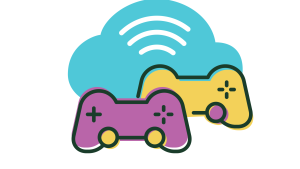
Alok Kanojia, MD, MPH (President & Co-Founder, Healthy Gamer), discusses how video gaming affects brain chemistry–and the resulting impact on players’ mental health–in the #AskTheExperts webinar “State of Play: The Ins and Outs of Healthy and Problematic Video Gaming” on March 20, 2024.
Read The Video Transcript
[Dr. Alok Kanojia]: So we know that video games release dopamine, but there are a couple of other effects that we see are really problematic. So the first is that they change our attention span. So if you look at sort of what a video game does, a video game doesn’t require you to stay engaged. The whole point is that unlike something like a book where you have to force yourself to pay attention, video game developers are competing to try to keep people as engaged as possible. And so what we tend to see, we’re seeing a rise in the rates of ADHD diagnosis, which is why some of these things, like Akili, have become increasingly important. And so as ADHD is going up, as the rates of diagnosis are going up, as our attention spans shrink, we’re starting to see this kind of as a result of gaming because people don’t have to focus their attention. The second thing that we tend to see a lot of in addition to the dopaminergic stuff is actually emotional circuitry. So if we look at video games, we know that playing a video game, much like many other addictive substances or behaviors, suppress our amygdala and our limbic system. So these are the parts of our brain that experience negative emotions. And so what we kind of see with unhealthy gaming is a cycle of, let’s say I’m being bullied at school, let’s say I’m not doing great in my classes, so how do I manage those negative emotions? I’m going to shut them off through video gaming. And then this creates a vicious cycle because if we really look at the evolutionary purpose of negative emotions, negative emotions are powerful motivators for corrective behavior.
View The Full Webinar

State of Play: The Ins and Outs of Healthy and Problematic Video Gaming
Video gaming has become a near-universal activity with children. Which features in popular video games can promote (or hinder) their cognitive development and mental health?
Douglas Gentile, PhD
Distinguished Professor in Liberal Arts and Sciences, Department of Psychology, Iowa State University
Nick Ballou, PhD
Postdoctoral Researcher, Oxford Internet Institute
Adam Gazzaley, MD, PhD
Founder & Executive Director, Neuroscape; David Dolby Distinguished Professor of Neurology, Physiology and Psychiatry, University of California San Francisco
Kishonna Gray, PhD
Associate Professor, University of Kentucky
Alok Kanojia, MD, MPH
President & Co-Founder, Healthy Gamer





